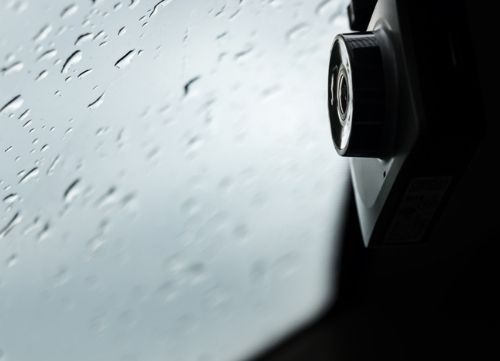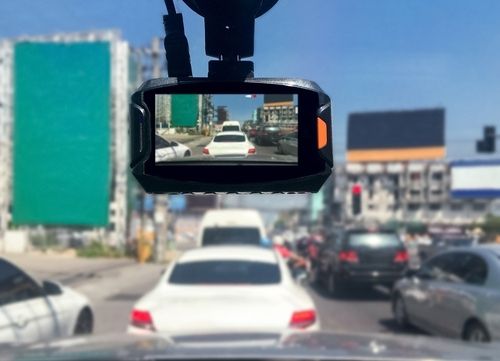Remember when sat navs were a new technology? Fleets were amongst the first to adopt them wholesale, improving their route-planning operations long before your average road user had one on their phone or built into their vehicle dashboard.
In many ways, dashcams now are where satellite navigation systems were back then. So with that in mind, we thought we’d take a look at next-gen dashcam technology and how it might benefit your fleet in 2022 or beyond.
A fleet dashcam is a camera system set up specially to help a fleet’s management team with various aspects of insurance, safety and compliance. They can be used to ensure on-road incidents are recorded for proof, monitor driver behaviour behind the wheel, and gather data that can help to improve fleet policies and training procedures.

There are essentially three different types of dashcam systems currently available on the market.
As mentioned above, older style dashcams often record their footage to SD cards. That means a member of your fleet management team needs to manually save the data from each cam at the end of every shift. It’s not only a potentially laborious and time-intensive task, but one that runs the risk of lost footage if you forget to do it or simply can’t get to the task in time.
Our first essential next-gen dashcam technology suggestion is considering a system that automatically saves footage to the cloud. It will save your office team time, and potentially save the company money since you’ll never lose any footage that could come in handy if an insurance claim happens.
This is another one we covered briefly above but deserves more detail.
One of the more prominent examples of new next-gen dashcam technology, AI is capable of picking up on a host of different criteria in fleet driver behaviour, including:
Particularly powerful modern AI-powered dashcam systems (the Nextbase iQ, for example) can even be capable of giving alerts to drivers in real-time – meaning your fleet can stay safer on the roads without incidents occurring. And if incidents do occur, having the extra detail given by AI can also be fundamental to informing your safety procedures moving forwards.
Either way, with the power of AI built into your fleet’s dashcams, you’ll be set for safer day-to-day driving, and far more empowered to understand the risks your drivers take, so you can iron them out with tailor-made training programmes.

Another next-gen dashcam technology to consider adding to your fleet in 2022 is 4K-enabled cameras. These dashcams may be more expensive than lower resolution models, but the extra clarity in the image can ensure not a single detail is missed in high-speed footage – an especially important element if you find yourself looking into the cause and effect of a high-speed collision. The extra image clarity can also help inward-facing AI-powered dashcams to detect driver behaviour and habits more clearly, meaning you get even more accurate data to use in future training.
When people think of fleets, they think of lorries or delivery vans. But we’re well aware that fleets can also be made up of smaller vehicles. Dashcams with built-in GPS can be especially good for fleets with the purpose of transporting people from A to B. Integrating them with a telematics system like our own Motrak solution can be a handy way to feel the benefit of new next-gen dashcam technology without breaking the bank.
By the end of the year, we expect to see a tipping point where 5G becomes a mainstream technology. By the end of 2023, it will likely be the dominant network, with most dashcams at that time including 5G compatibility.
5G carries so much more data (around 100 times more than 4G, to be precise!) that it’s also going to be a foundational technology for the more data-intensive technologies we’ve mentioned above. A 4K, AI-powered, cloud-compatible dash cam with built-in GPS will, in all likelihood, need a 5G network to make the most of every feature it offers. That makes 5G the new next-gen dashcam technology when it comes to protecting your fleet’s future.
If not, there’s no need to worry. Our team have a wealth of experience helping fleets of all sizes outfit their vehicles with the most suitable technology for now and the future.
To find out more, call us on 0344 854 5100 or email CSalmon@sgfleet.com.